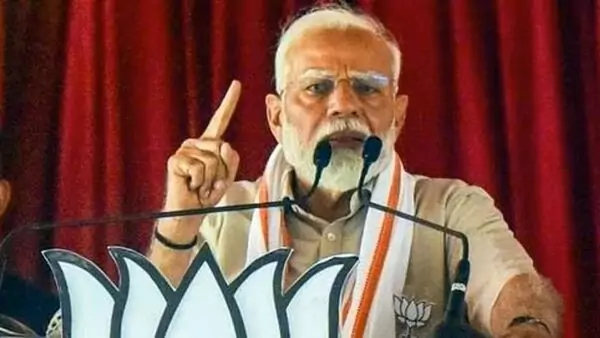The High Court’s Verdict
In a significant ruling, the Delhi High Court has thrown out a petition aimed at disqualifying Prime Minister Narendra Modi from electoral contests for a duration of six years. The petitioner alleged that PM Modi breached the Model Code of Conduct (MCC) by invoking religious sentiments in a speech delivered in Pilibhit, Uttar Pradesh. However, the court has deemed the plea to be without substance, marking a crucial legal decision amidst political tensions.
Delhi HC’s Decision: Lack of Merits
The Delhi High Court, in its comprehensive assessment, has determined that the petition lacks any substantial grounds for disqualifying Prime Minister Narendra Modi from electoral participation. Despite the petitioner’s allegations regarding MCC violations concerning religious appeals during a public address in Pilibhit, the court has deemed the claims as insufficient to warrant disqualification.
The Petitioner’s Allegations: Basis of the Plea
The petitioner’s core argument rested on Prime Minister Narendra Modi’s purported transgression of the Model Code of Conduct by making appeals to religious sentiments during his speech in Pilibhit, Uttar Pradesh. The plea contended that such actions amounted to seeking votes on the grounds of religion, thereby violating the principles outlined in the MCC.
Legal Analysis: Lack of Substantive Evidence
Upon scrutinizing the petitioner’s claims, the Delhi High Court found a dearth of concrete evidence to substantiate the allegations leveled against Prime Minister Narendra Modi. Despite assertions regarding MCC violations, the court emphasized the necessity for robust evidence to justify disqualification from electoral participation, which the petitioner failed to provide.
Judicial Rationale: Upholding Electoral Integrity
In delivering its verdict, the Delhi High Court underscored the importance of upholding the integrity of electoral processes while ensuring that legal actions are founded on substantial evidence rather than mere conjecture or political motives. The court’s decision reaffirms the principle of due process and underscores the significance of maintaining a fair and transparent electoral environment.
Political Implications: Impact on Public Perception
The dismissal of the plea against Prime Minister Narendra Modi carries significant ramifications for the political landscape, particularly in terms of public perception and electoral dynamics. While the petitioner’s allegations sought to challenge the Prime Minister’s candidacy, the court’s verdict underscores the resilience of legal mechanisms in safeguarding democratic principles.
FAQs (Frequently Asked Questions)
1. What were the grounds for the plea seeking PM Modi’s disqualification?
The plea alleged violations of the Model Code of Conduct by PM Modi, particularly regarding appeals to religious sentiments during a speech in Pilibhit, Uttar Pradesh.
2. How did the Delhi High Court respond to the petitioner’s claims?
The court dismissed the plea, citing a lack of substantive evidence to support the allegations of MCC violations against PM Modi.
3. What significance does this verdict hold for electoral processes?
The verdict underscores the importance of upholding electoral integrity and ensuring that legal actions are based on substantial evidence rather than mere conjecture.
4. What are the political implications of the court’s decision?
The dismissal of the plea against PM Modi reaffirms the resilience of legal mechanisms in safeguarding democratic principles and underscores the significance of due process in electoral matters.
5. How does this decision impact Prime Minister Narendra Modi’s candidacy?
The court’s decision to dismiss the plea maintains PM Modi’s eligibility for electoral participation, emphasizing the necessity for robust evidence to justify disqualification.
6. What message does the verdict send regarding the rule of law?
The verdict reinforces the principle of due process and highlights the judiciary’s role in upholding democratic norms, irrespective of political affiliations.
Conclusion: Upholding Legal Integrity
The Delhi High Court’s dismissal of the plea seeking Prime Minister Narendra Modi’s disqualification from electoral contests for six years underscores the judiciary’s commitment to upholding legal integrity and ensuring due process. Despite political tensions and allegations, the court’s verdict reaffirms the primacy of substantive evidence in legal proceedings, serving as a testament to the resilience of democratic institutions in India.
Stay updated with all the insights.
Navigate news, 1 email day.
Subscribe to Qrius

